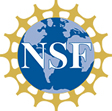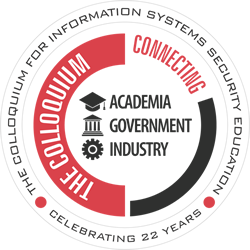The NACE Workshop
Overview
We will be convening a 1.5 day workshop on June 9 & 10, 2018 in New Orleans, before the CISSE Annual Colloquium. The workshop will be conducted as a set of brain-storming and planning exercises, both in small groups and as a whole. These will be derived from attendee-generated idea papers and some other sources.
A final report on the workshop will be produced later in the year by the steering committee, which we plan to share with Federal funding agencies -- including NSF, DHS, and NIST -- and concerned parties in industry and academia. We anticipate that workshop attendees and members of the community will help to publicize key conclusions from the workshop. All attendees will be credited in the final report, and their finalized idea papers included.
80 idea papers were submitted by people interested in attending the workshop; 30 people have been invited based on those papers. Attendees are expected to read -- before the workshop -- a set of idea papers written by other attendees, alternates, and a few others that the program committee found particularly interesting. (See below) After the workshop, attendees are expected to revise their idea papers for inclusion in the final report.
Agenda and Logistics
Agenda
The workshop will convene at 1pm on Saturday, June 9 and conclude by 5pm on Sunday June 10. There will be a working dinner on 9th and lunch on the 10th. A tentative agenda will be posted soon.
Travel
Invited attendees should make their own travel reservations, to arrive by Saturday June 9 at 1pm. The workshop will end at 5pm on Sunday, June 10. Domestic, economy airfare (train/bus) is all that will be reimbursed.
There is no registration fee for the NACE workshop for invited attendees. Acceptance at the workshop does not provide registration for the CISSE event — attendees need to register for that conference on their own if they wish to attend.
The workshop will be held in the Intercontinental Hotel in New Orleans — the conference hotel for the CISSE. Attendees should make their own lodging reservations using the CISSE conference hotel and special rate. See the CISSE Annual Colloquium for details.
The workshop will include dinner on Saturday and lunch on Sunday. Depending on final registration, we may also provide breakfast on Sunday. (Updates will be posted here.)
Reimbursement
We will provide reimbursement in one of two ways:
- Participants in the workshop who stay for the full workshop and then update their idea pieces for the final report will receive a stipend (approximately $1100) that is meant to cover transportation, lodging, and other expenses of the attendee. (If any attendee's domestic, economy travel expenses and lodging exceed this amount, the stipend will be adjusted accordingly; receipts will be required.)
- Participants who choose to not update their idea pieces, or who miss a significant portion of the workshop, will receive direct reimbursement of travel expenses based on receipts.
Regular NSF travel conditions apply. Government employees and contractors who need to reimburse the workshop for meals will be given information to do so.
Reimbursement forms will be provided at the workshop. Completing a W-2 will be required. Reimbursement should occur within 6 weeks of submitting the final idea piece/receipts.
Read-aheads
Participants are required to read the following idea pieces ahead of the workshop, to provide a quick start and common basis for our conversations.
Idea Pieces by applicants and attendees
Each applicant was asked to submit an idea piece addressing workshop themes. The pieces from invited attendees below are included. Also include are a few pieces from applicants who were not invited (lack of space), but which the steering committee thought were interesting and should be read by attendees. Items by attendees are indicated by a a mark.
(If you wish to download all the idea pieces+the executive summary of the commission report, it is available in a combined PDF of 4.9Mb. Don't be daunted by the page count -- there is lots of empty space and you can skip the bios and cover letters.)
Pieces ordered by (first) author name:
- Abhilasha Bhargav-Spantzel and David Bills, Intel Corporationa
- Broadening And Diversifying The Reach Of Cybersecurity Education
- Matt Bishop, UC Davis a
- A Constructive Build-the-Flag Contest
- Jane Blanken-Webb, University of Illinois a
- Cybersecurity Ethics Education: On “Future-Proofing” the Education We Provide
- Scott Borg, US Cyber Consequences Unit a
- Seven Overlapping Theses On Cyber-Security Education
- Chris Bronk and Wm. Arthur Conklin, University of Houston a
- Making Socio-Technical Cybersecurity a Part of Educational Preparation
- Susan Campbell and Petra Bradley, University of Maryland a
- Cybersecurity automation and security
- Agnes Chan, Northeastern University a
- A new approach for Bachelor degree in Cybersecurity
- Hsia-Ching Chang, University of North Texas a
- Extending Existing Stop-Think-Connect Model to a Complementary Education Model for the Public: Learn-Think-Change
- Balakrishnan Dasarathy, UMD University College
- Resources to Meet Cybersecurity Education Demands
- Paula deWitte, Texas A&M University a
- The Future of Security and Privacy Education: Incorporating Cybersecurity Law and Policy into Cybersecurity Curricula
- Michael Dunn, USAF a
- The Role of Extracurricular Activities in Cybersecurity Education
- Marc Dupuis, University of Washington Bothell a
- Co-Op Light: Developing a Cyber Security Workforce through Academia-Industry Partnerships
- Michelle Duquette, Battelle Memorial Institute a
- Idea Submission
- Christine Fossaceca, MIT Lincoln Laboratory a
- Proposed College Curriculum Changes for Producing Secure Developers
- Simson L. Garfinkel, unaffiliated
- Improve Cybersecurity Education by Bringing Secure Coding to CS1
- Ashley Greeley, Harrison High School (IN) a
- Integrating Cybersecurity into the K-12 Classroom
- Drew Hamilton, Mississippi State University
- Meeting the Cyber Security Workforce Demand
- Seth Hamman, Cedarville University
- Cybersecurity for All CS
- Shelly Heller, Lance Hoffman and Costis Toregas, George Washington University a
- Preparing CyberSecurity Experts as Adjunct Faculty to Teach at the Post Secondary Level
- Mun-Wai Hon
- MAPs
- Cynthia Irvine, Naval Postgraduate School a
- Cybersecurity Education for Children of the Information Age
- Joni Jones, University of South Florida
- Educate the Educators to Equip the Next Generation
- Char Sample and Connie Justice, IUPUI a
- Suggestions for Addressing the Changing Needs of the Cyber Security Workforce
- Sidd Kaza, Towson University a
- A Cyber Security Library – The need, the distinctions, and some open questions
- Rana Khalil
- New Approaches to Cybersecurity Education: CTF 101 Elective
- Mohammad Taha Khan, Chris Kanich and Cynthia Taylor, University of Illinois at Chicago a
- Integrating Ethics in Cybersecurity Education
- Denise Kinsey, University of Houston
- Proposal paper in support of ‘shared’ cybersecurity special topics course
- Proposal paper in support of uniquely crafted externships/course projects
- Jeff Kosseff, US Naval Academy
- Cybersecurity Law for Undergraduates
- Nancy Mead, CMUa
- Cybersecurity Education and Competency Challenges
- Randal Milch and Nasir Memon, NYU a
- Interdisciplinary Cyber Security Education
- Lauren Neely, University of Houston a
- The Revival Of The Apprenticeship: A New Approach To Cybersecurity Education
- Amos Olagunju, St. Cloud State University
- Futuristic Cybersecurity Education And Workforce Development Initiatives
- Stephen R. Orr IV, US Naval Academy a
- Untitled
- Allen Parrish, Mississippi State Universitya
- Cybersecurity As A Standalone Baccalaureate Degree: Issues And Challenges
- Meg Ray, Cornell Tech & Tim Winston, Coalfire Systems a
- Onramp To Cybersecurity Labor Pipeline Through K12 Classroom Education
- Eugene Rooney, University of New Mexico a
- What Are Some Good Ways To “Future-Proof” The Education We Provide?
- Julie Rursch, Iowa State University a
- The Post-Millennials Have Arrived!
- Stephanie Siteman, Facebook a
- Investing in the Future of the Cybersecurity Workforce
- Blair Taylor, Towson University a
- The Need For A National Cyber Academy: The United States Cybersecurity Academy
- Luis Vicente, Polytechnic University of Puerto Rico
- Untitled
- David Voorhees, Le Moyne College
- Two Ideas, One Paper
- Grant Wagner and Steve LaFountain, NSA a
- Junior Cyber Corps
- Encouraging Primary & Secondary School Teachers
- Yong Wang, Dakota State University a
- Cs4A: A New Approach For Cybersecurity Workforce Development
- Tina Williams-Koroma, TCecure LLC a
- Ideas
- Yenny Yi, UCLA at Franklin HS (CA) a
- CybSec Champions Fellowship
- NICE Cybersecurity Workforce Framework
- ACM/IEEE/AIS SIGSEC/IFIP Cybersecurity Curricular Guideline
- An excellent mini-history and set of thoughts by Corey Schou that apply to the workshop, lus ça change, plus c'est la même chose, available via the ACM Digital Library.
- Two of Spaf's older blog posts that address items raised in some of the idea pieces: On Competitions and Competence and Some thoughts on “cybersecurity” professionalization and education.
Dinner Speaker
Our dinner speaker will be Prof. Richard A. DeMillo, of Georgia Tech. He was one of the chairs of the Georgia Tech Commission on Creating the Next in Education. Some of their ideas may help inspire some of our own thinking. Dr. DeMillo will brief some of those results, and engage in a Q&A session after dinner on Saturday.
Attendees are expected to have read the executive summary (if not the whole report; follow the links).


